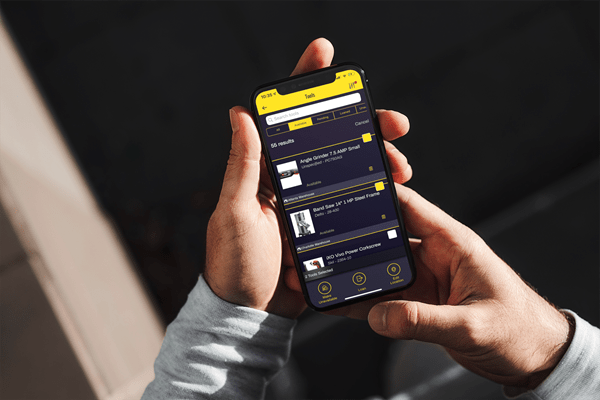Tool Tracking: Building Trust with a Shifting Labor Force
Building Trust with a Shifting Labor Force
Construction is an odd beast when compared to other businesses. The turnover is high with labor shifting on nearly every project – sometimes even in the middle of a job. The longer people work together, the better chance that trust is established. Construction, with its rapid labor changes doesn’t always have the luxury of building meaningful trust quickly. Since trust is built by sharing information, working together and establishing a system of accountability, it’s important to look at tools that do all of these things fast so that your teams begin to gel, stick around longer and become a more productive force.
Building trust on the jobsite
An open and honest communication policy is paramount to building trust. Anything you can do to improve communications can lay the foundation for building trust. While much has been written about building trust through contracts, meeting protocol and technology platforms, there’s one area that’s often overlooked which has a major impact on the level of trust in a project team – tool accountability.
According to the National Equipment Registry (NER) in an article published by dig different, the loss of tools and equipment costs the construction industry over a billion dollars annually. The author writes, “When workers don’t have tools readily available, it decreases efficiency and potentially adds time for job completion. With many jobs, missing a deadline can mean penalties, fines and lost contracts.”
Tool loss is a big deal. That’s why the tool manager on a project has the unenviable job of keeping track of every power tool, tablet or drill that goes into the field. The toughest part of the job is addressing tool loss. This is where the trust can crumble quickly. If the wrong person is accused of losing or stealing a tool, the accusation alone breaks down trust.
Ditch the spreadsheets
The truth is, if you’re still using sign out sheets for tool management, the chances of maintaining accurate accountability is notably at risk, so the wrong people could, and often do, get blamed. And if “lecturing and telling employees what to do begins, it implies that (the manager) doesn’t have faith in their decision-making abilities,” said Reliable Plant Online.
A tool system takes the plausible deniability out of the discussion. When responsibility is clearly defined, your guys will do a better job of keeping track of their tools. If held accountable in a tool sharing system, employees understand they have a problem to solve rather than transferring blame on to others. When blame-shifting begins breaking down trust between employees, it’s time to assign accountability and build trust through the use of a proven tool tracking system. Then, there can be no debate.
The respect is mutual
Using a modern tool tracking application that allows a person to accept and transfer responsibility in the field leads to better efficiency, saves money and establishes accountability – which is the key attribute of trust.
A simple app on the smartphone in your pocket or tablet in the warehouse can eliminate the headache of tool management while creating real trust across the team in the field. And, it just might be the key to building the mutual respect needed to keep your best guys around for years to come.
Read our full article on The Power of Trust.
If you’d like to learn more about modern tool tracking applications check out ShareMyToolbox or call, 866.768.8665.
Click here: to see How our Tool Tracking App Works.
More Tool Tracking Tips available including these articles:
Article on how to stop Tool Hoarding
Tool Tracking Beacon Technology Guide
Technology Alone is Not the Solution to Tool Theft
Tool Tracking is a Clear Way to Improve Operations
See Tool Tracking Tips
Free and open access to articles, case studies and tool tracking best practices.
